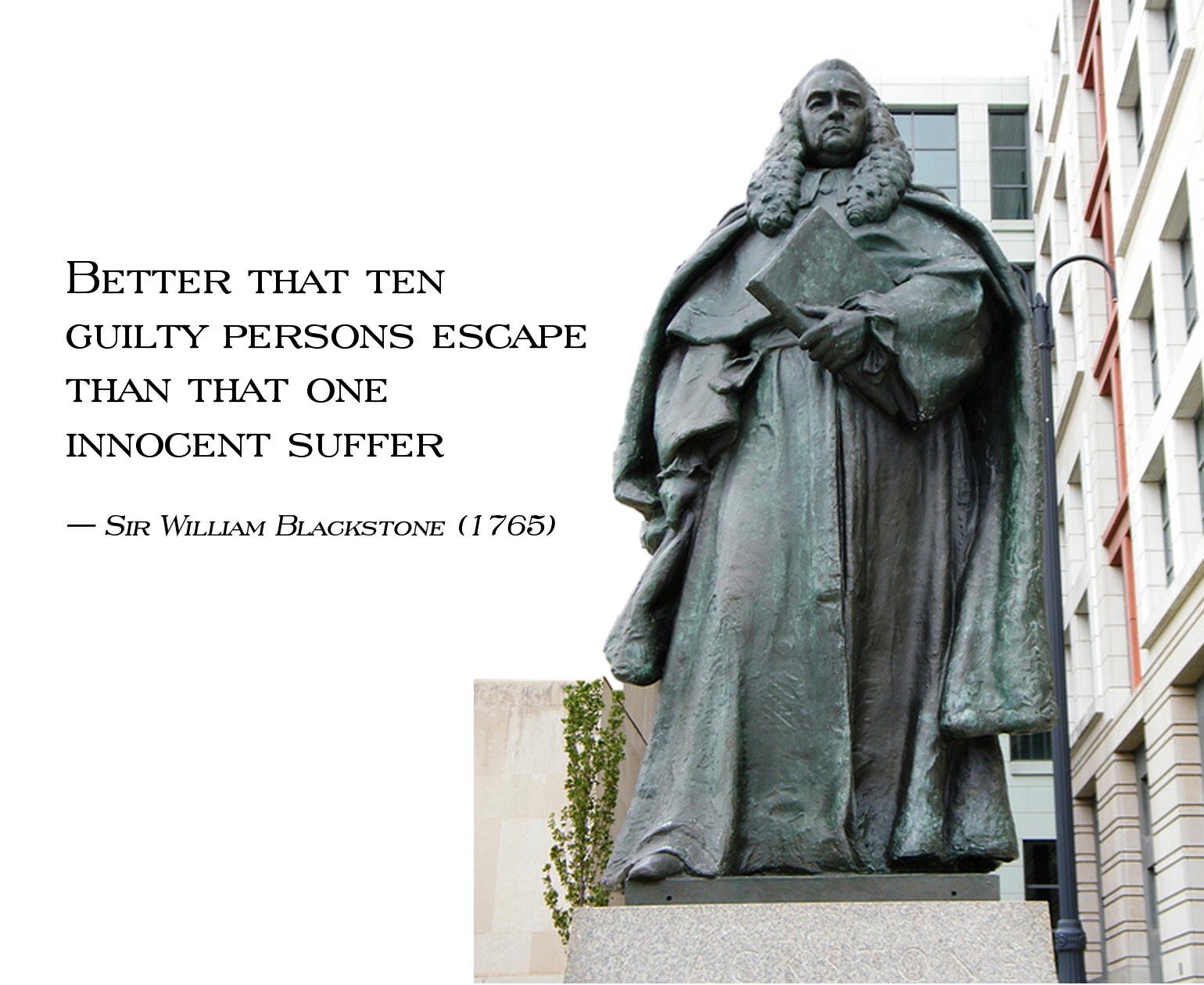By the eighteenth century the English recognized that a unique constitution had evolved from the period of their Civil War. Basically unwritten, rooted in the common law, this constitution would contribute to a remarkable period of political stability. In 1765 an English jurist, William Blackstone (1723-1780), would prepare a lengthy set of commentaries on the laws of England in which the process dramatically accelerated by the English Revolution was described:
And herein indeed consists the true excellence of the English government, that all the parts of it form a mutual check upon each other. In the legislature, the people are a check upon the nobility, and the nobility a check upon the people; by the mutual privilege of rejecting what the other has resolved: while the king is a check upon both, which preserves the executive power from encroachments. And this very executive power is again checked and kept within due bounds by the two houses, through the privilege they have of inquiring into, impeaching and punishing the conduct (not indeed of the king which would destroy his constitutional independence; but, which is more beneficial to the public,) of his evil and pernicious counsellors. Thus every branch of our civil polity supports and is supported, regulates and is regulated, by the rest…. Like three distinct powers in mechanics, they jointly impel the machine of government in a direction different from what either, acting by itself, would have done … a direction which constitutes the true line of the liberty and happiness of the community.

